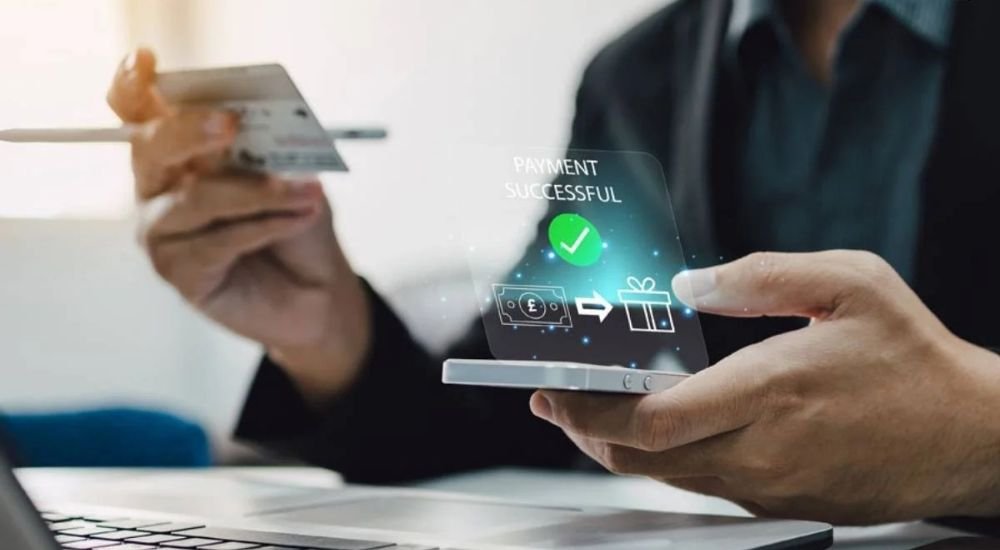In the digital era, Online Transactions have become a convenient part of our daily lives. However, with this convenience comes the need for stringent security measures, especially when it comes to protecting personal information. Ensuring secure deposits and withdrawals is critical, as any breach could lead to severe financial losses and identity theft. In this article, we’ll delve into the importance of securing personal information during these transactions and explore ways to identify safe platforms.
What is Personal Information Security in Online Transactions?
Personal information security involves protecting sensitive data like names, bank details, and addresses from unauthorized access. It’s essential in online transactions because this information, if misused, can lead to significant financial and personal harm.
Common Risks to Personal Information in Financial Transactions
Online financial transactions carry inherent risks, primarily related to data exposure and cyberattacks. Here are a few common risks:
- Data Breaches: Data breaches occur when hackers gain unauthorized access to a system and extract vast amounts of sensitive information, including user data.
- Unauthorized Access: Some financial platforms may lack robust security, making it easier for unauthorized users to access personal information.
- Identity Theft: With sufficient information, cybercriminals can impersonate users, leading to unauthorized account activity and potential financial loss.
The Deposit and Withdrawal Process: How Information Can Be Compromised
When making deposits or withdrawals, users often enter sensitive data that must be protected from interception. However, without adequate security protocols, such as encryption, this information can be exposed. Hackers or even insiders can exploit vulnerabilities during the transaction process, which makes secure practices essential.
Why Personal Information Protection is Vital
The consequences of compromised personal data extend beyond monetary loss. If data is mishandled, users may face identity theft, a damaged credit score, and an invasion of privacy. Therefore, protecting this information is crucial for peace of mind and financial security.
How to Recognize a Secure Site for Deposits and Withdrawals
To identify a secure site for financial Online Transactions, consider these features:
- SSL Certification: SSL (Secure Sockets Layer) encrypts the data shared between the user and the website, ensuring that third parties cannot easily access it.
- Secure Payment Methods: Opt for platforms that provide reputable payment options, as these usually come with added layers of security.
The Role of the Eat-and-Run Investigation Team
The Eat-and-Run Investigation Team is a group dedicated to evaluating financial platforms’ security. They assess websites for vulnerabilities and recommend only those that implement strong data protection measures. By following their recommendations, users can feel more confident about a platform’s safety.
Steps to Protect Personal Information When Making Online Transactions
Protecting your data during online transactions involves taking proactive steps:
- Use Strong Passwords and Two-Factor Authentication: A strong password combined with two-factor authentication provides an extra security layer, making it harder for unauthorized users to access accounts.
- Avoid Using Public Wi-Fi for Online Transactions: Public networks are generally less secure and can expose your data to unauthorized users. It’s best to use private networks when making financial Online Transactions.
Key Features of Secure Financial Websites
Secure financial websites implement advanced encryption methods to safeguard data. They also adhere to data protection laws like GDPR and CCPA, ensuring user information is protected under legal standards.
What to Do If Your Information is Compromised
If your data is compromised, it’s important to take immediate action:
- Change Your Passwords: Update your passwords for any affected accounts.
- Notify Your Bank or Financial Institution: Alerting your bank can help them monitor for suspicious activity.
- Monitor Your Accounts: Regularly checking your accounts for any unusual Online Transactions can help detect fraud early.
Legal Standards for Online Financial Security
Several legal frameworks mandate the protection of user data. The General Data Protection Regulation (GDPR) in Europe and the California Consumer Privacy Act (CCPA) in the U.S. are examples of laws that require online platforms to prioritize data security. These standards ensure that websites follow proper protocols to protect personal information.
Best Practices for Users to Stay Safe
To enhance online security, users can adopt the following practices:
- Regularly Monitor Accounts: Frequently checking your financial accounts helps catch suspicious activity early.
- Install Security Software: Security software can detect malware and other threats, adding an additional layer of defense.
The Role of Trust in Choosing Financial Platforms
When selecting a platform for deposits and withdrawals, trust is essential. Reliable platforms will usually have strong security measures in place and favorable reviews from users who value security.
How the Eat-and-Run Investigation Team Assesses Sites
The Eat-and-Run Investigation Team examines several criteria, including security protocols, data protection compliance, and transparency, before recommending any platform. Their role is to help users identify platforms that prioritize user safety, ensuring that personal information is safeguarded during Online Transactions.
Conclusion
In today’s digital landscape, protecting personal information during deposits and withdrawals is more important than ever. By choosing secure platforms, recognizing trusted signs of security, and taking proactive steps to protect your data, you can minimize risks and carry out online transactions with peace of mind.








